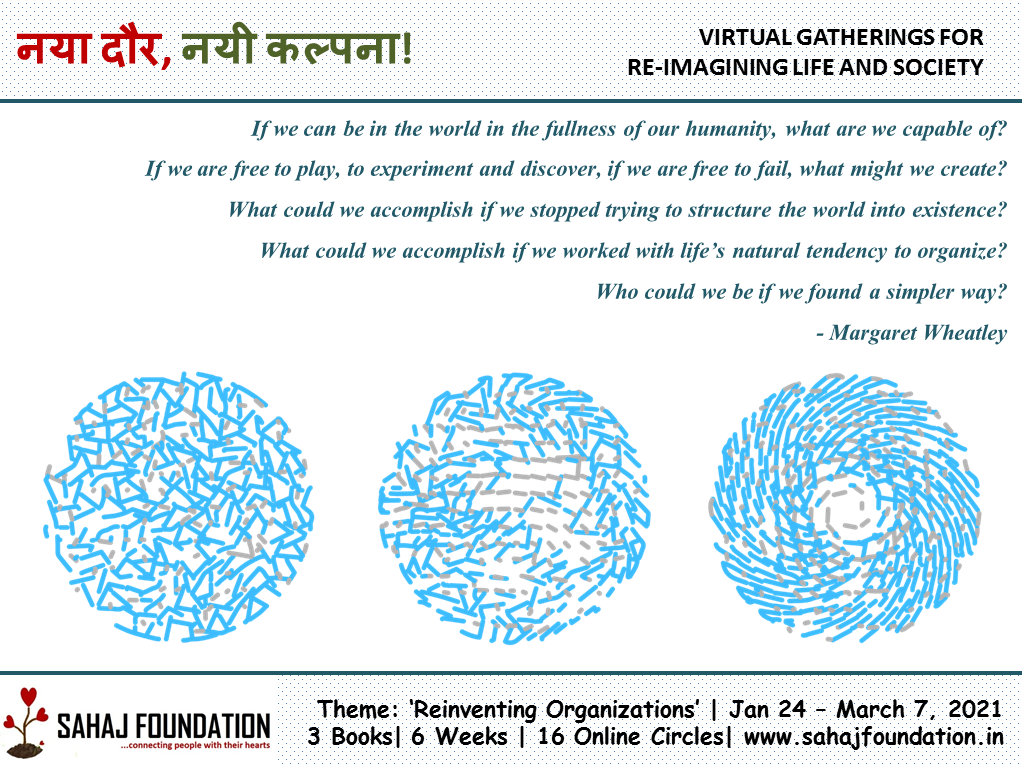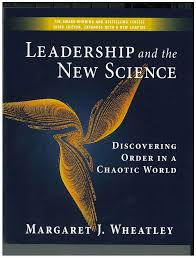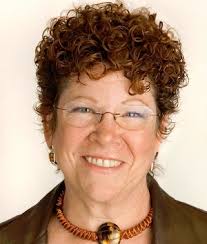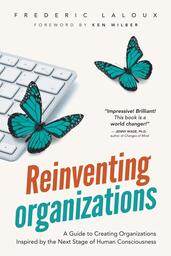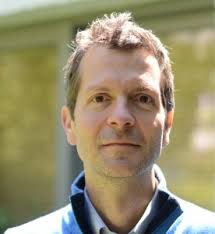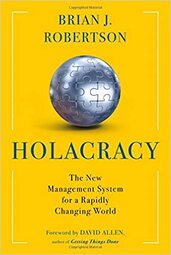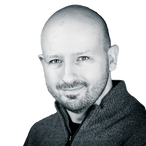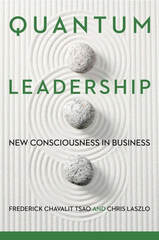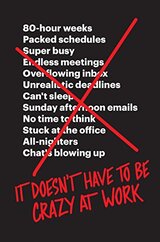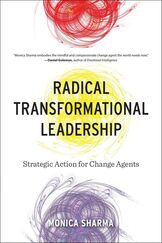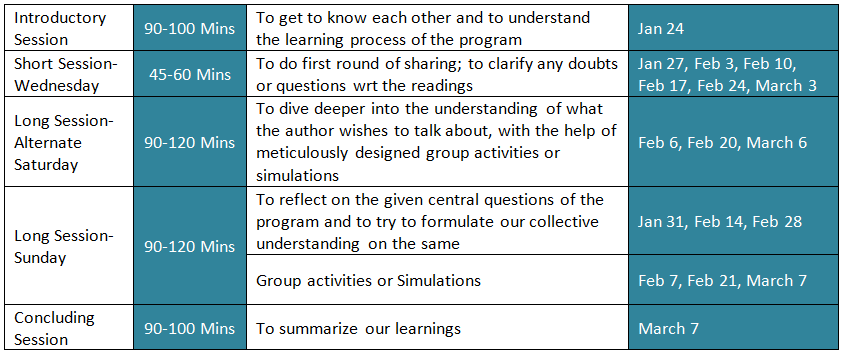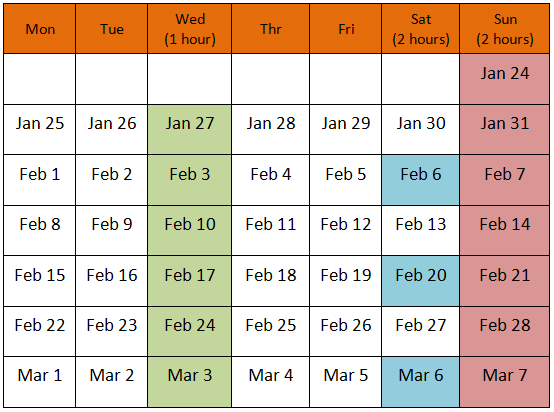INTRODUCTION
The times are changing. Though last decade has mostly been full of struggle, climate catastrophes, political disruptions, healthcare pandemic, economic and financial crisis et cetera, more and more people are now able to recognize the in-built disparities of our economic, political and social systems that undeniably lead to disastrous outcomes. While, on one side, our present systems have accelerated the economic and political inequalities, on the other side, many people have chosen to walk-out of the system with a hope to co-create a new one. These walk-outs not only walk out of their present world, they also choose to walk out of their present perception of the world, i.e. present state of consciousness that has led the world into a belief of separate-ness.
The new world that these new people wish to create holds a radically different worldview. In their new perception of the world, human beings are not seen as separate from each other and from the rest of the species, plants or materials of the planet. In their new story of existence, human beings are so deeply intertwined into the existence of reality that it is not only impossible to consider them separate but it is also utterly naïve to only think of their well-being while not taking care of the well-being of the whole eco-system. Moving a step further, these walk-outs consider the outer world as an extension of their inner realities; a form of existence wherein the spiritual is not separate from the practical, a world where spiritual and practical are rather continuations of each other.
What is even more intriguing is that this new radical perception of the world has now also been backed by the recent findings of the science, especially quantum physics. In the words of physicist Fritjof Capra, “Quantum theory thus reveals a basic oneness of the universe. It shows that we cannot decompose the world into independently existing smallest units. As we penetrate into matter, nature does not show us any isolated "building blocks," but rather appears as a complicated web of relations between the various parts of the whole. These relations always include the observer in an essential way. The human observer constitutes the final link in the chain of observational processes, and the properties of any atomic object can be understood only in terms of the object's interaction with the observer.”
So, how would the fresh worldly systems envisioned by these walk-outs with their radical perception of the reality look like? The answers are neither simple nor completely visible yet. They are emerging, one day at a time, one initiative at a time. They are emerging in the field of Economics, Politics, Management and also in the spaces of our communities. One rather interesting space to take notice of is the space of Organizations. It is intriguing to know how these walk-outs have chosen to transform the conventional profit-oriented organizational models into inner-growth oriented organizations that are also in alignment with the self-organizing, interdependent, dynamic view of the nature. Therefore, these organizations not only weave ‘the story of oneness’ into the world by tapping into the spiritual realm, but they also maintain distributed autonomy and evolutionary purposefulness so as to appropriately cater to our dynamic and complex society.
In our third version of ‘नया दौर, नयी कल्पना’ program, after exploring the themes ‘Reimagining Economy’ in version 1 and ‘Understanding and Re-directing Technology’ in version 2, we shall now dive into the theme ‘Reinventing Organizations’ so as to explore the possibility of either transforming our existing or launching new organizations as per the fresh worldview. These 6-week long ‘Virtual Gatherings for Re-imagining Life and Society’ shall make use of different books, research papers, essays and talks to reflect upon following three central questions:
Question #1: What are the limitations of the existing forms of profit-oriented and/or impact-oriented organizations? How are they not in alignment with the new findings of Science with respect to ‘how nature exists’?
Question #2: How do organizations that consider themselves in alignment with the new findings of the Science function? What are their distinct features or structures, and how are they different from the conventional ones?
Question #3: How can we design new or transform existing organizations as per the new worldview; a worldview that considers human beings as deeply intertwined with nature, a view that does not consider spiritual as separate from the practical?
In this whole process, we shall seek the support of meditation sessions, a number of meticulously designed group activities and possibly a group project by the end so as to deepen our experience.
The new world that these new people wish to create holds a radically different worldview. In their new perception of the world, human beings are not seen as separate from each other and from the rest of the species, plants or materials of the planet. In their new story of existence, human beings are so deeply intertwined into the existence of reality that it is not only impossible to consider them separate but it is also utterly naïve to only think of their well-being while not taking care of the well-being of the whole eco-system. Moving a step further, these walk-outs consider the outer world as an extension of their inner realities; a form of existence wherein the spiritual is not separate from the practical, a world where spiritual and practical are rather continuations of each other.
What is even more intriguing is that this new radical perception of the world has now also been backed by the recent findings of the science, especially quantum physics. In the words of physicist Fritjof Capra, “Quantum theory thus reveals a basic oneness of the universe. It shows that we cannot decompose the world into independently existing smallest units. As we penetrate into matter, nature does not show us any isolated "building blocks," but rather appears as a complicated web of relations between the various parts of the whole. These relations always include the observer in an essential way. The human observer constitutes the final link in the chain of observational processes, and the properties of any atomic object can be understood only in terms of the object's interaction with the observer.”
So, how would the fresh worldly systems envisioned by these walk-outs with their radical perception of the reality look like? The answers are neither simple nor completely visible yet. They are emerging, one day at a time, one initiative at a time. They are emerging in the field of Economics, Politics, Management and also in the spaces of our communities. One rather interesting space to take notice of is the space of Organizations. It is intriguing to know how these walk-outs have chosen to transform the conventional profit-oriented organizational models into inner-growth oriented organizations that are also in alignment with the self-organizing, interdependent, dynamic view of the nature. Therefore, these organizations not only weave ‘the story of oneness’ into the world by tapping into the spiritual realm, but they also maintain distributed autonomy and evolutionary purposefulness so as to appropriately cater to our dynamic and complex society.
In our third version of ‘नया दौर, नयी कल्पना’ program, after exploring the themes ‘Reimagining Economy’ in version 1 and ‘Understanding and Re-directing Technology’ in version 2, we shall now dive into the theme ‘Reinventing Organizations’ so as to explore the possibility of either transforming our existing or launching new organizations as per the fresh worldview. These 6-week long ‘Virtual Gatherings for Re-imagining Life and Society’ shall make use of different books, research papers, essays and talks to reflect upon following three central questions:
Question #1: What are the limitations of the existing forms of profit-oriented and/or impact-oriented organizations? How are they not in alignment with the new findings of Science with respect to ‘how nature exists’?
Question #2: How do organizations that consider themselves in alignment with the new findings of the Science function? What are their distinct features or structures, and how are they different from the conventional ones?
Question #3: How can we design new or transform existing organizations as per the new worldview; a worldview that considers human beings as deeply intertwined with nature, a view that does not consider spiritual as separate from the practical?
In this whole process, we shall seek the support of meditation sessions, a number of meticulously designed group activities and possibly a group project by the end so as to deepen our experience.
Disclaimer: Please do not expect to have any expert or professional of Organizational Theory/Management to be with us during the online gatherings. We shall be on our own, learning from each other while trying to apply our common sense to test the practicality or relevance of the proposed ideas.
THE BOOKS
During the course of 6 weeks, we shall prefer to divide our time equally for in-depth exploration of all three central questions mentioned above [i.e. around 2 weeks per question]. Our primary resources for these explorations shall be the following books:
|
Leadership and the New Science: Discovering order in a chaotic world is the guide to applying the new science- driven by quantum physics, chaos theory, and molecular biology- to organizations of all types, and to our personal lives. In the book, Margeret Wheatley describes how the new science radically alters our understanding of the world, and how it can teach us to live and work well together in these chaotic times. The book helps to learn that 1) Relationships are what matters—even at the subatomic level 2) Life is a vast web of interconnections where cooperation and participation are required 3) Chaos and change are nature's preferred route to transformation.
|
|
The way we manage organizations seems increasingly out of date. Deep inside, we long for soulful workplaces, for authenticity, community, passion, and purpose.
In this groundbreaking book "Reinventing Organizations: A Guide to Creating Organizations Inspired by the Next Stage in Human Consciousness", the author Frederic Laloux shows that every time, in the past, when humanity has shifted to a new stage of consciousness, it has achieved extraordinary breakthroughs in collaboration. A new shift in consciousness is currently underway. Could it help us invent a more soulful and purposeful way to run our businesses and nonprofits, schools and hospitals? According to the author, a few pioneering organizations, researched for this book, have already "cracked the code". The book describes their journeys along with the practical details on how organizations, large and small, can operate in this new paradigm! |
|
Holacracy is a revolutionary management system that redefines management and turns everyone into a leader. It distributes authority and decision-making throughout an organization, and defines people not by hierarchy and titles, but by roles. Holacracy creates organizations that are fast, agile, and that succeed by pursuing their purpose, not following a dated and artificial plan. This isn't anarchy – it's quite the opposite. When you start to follow Holacracy, you learn to create new structures and ways of making decisions that empower the people who know the most about the work you do: your frontline colleagues.
In this book "Holacracy: The New Management System for a Rapidly Changing World" author Brian Robertson takes us through the nitty-gritty of the proposed radical system. |
In addition to the above mentioned books, we shall also use some secondary material in the form of more books (partial reading), research papers, talks or essays, such as:
|
In this book, authors Frederick Tsao and Chris Laszlo show how changing a person's consciousness is the most powerful lever for unlocking his or her leadership potential to create wealth and serve humankind. Likewise, leaders who pursue this journey are more likely to flourish with significant benefits to both business and society. These include greater creativity and collaboration along with an increased capability to inspire people and produce lasting change.
|
|
TIMELINE
Sunday, January 24, 2021 – Sunday, March 7, 2021
We shall meet five times in two weeks, twice for short sessions (45-60 Mins; Wednesdays) and thrice for long sessions (90- 120 Mins; Saturday (alt) and Sundays) as per the following schedule:
We shall meet five times in two weeks, twice for short sessions (45-60 Mins; Wednesdays) and thrice for long sessions (90- 120 Mins; Saturday (alt) and Sundays) as per the following schedule:
The timings of the sessions shall be:
Wednesdays: 02:00 – 03:00 PM or 07:00 – 08:00 PM [Two possibilities]
Saturdays and Sundays: 07:00 – 09:00 PM
Kindly note that this whole program requires you to devote approximately 90 minutes every day to continue your reading of the books, essays, papers etc on your own. Therefore, please be a part of this adventure only if you are fully committed to the cause from within.
Wednesdays: 02:00 – 03:00 PM or 07:00 – 08:00 PM [Two possibilities]
Saturdays and Sundays: 07:00 – 09:00 PM
Kindly note that this whole program requires you to devote approximately 90 minutes every day to continue your reading of the books, essays, papers etc on your own. Therefore, please be a part of this adventure only if you are fully committed to the cause from within.
BATCH SIZE
Around 12-20 participants. We wish to a have a small group with more time per participant.
ELIGIBILITY CRITERIA
Anyone- of any age, gender, nationality, background, work experience- is invited to participate in this program as we wish to have as much diversity as possible. However, priority shall be given to people who are either already founders/lead of existing organizations or who wish to launch their own organizations in near future.
APPLICATION PROCESS
Kindly use this link to fill the application form: www.sahajfoundation.in/application-form-for-ndnk
We may choose to speak to you over phone before finalizing your participation in this program.
We may choose to speak to you over phone before finalizing your participation in this program.
FINANCIALS
The suggested range of contribution is Rs 7,500- Rs 15,000. The participants are encouraged to contribute as per their heart and financial situation. The ones who are capable of contributing on higher side are encouraged to do so, as we also wish to accommodate a few individuals who are not in a position to contribute financially. The charges cover facilitation for all 43 days, which include 16 compulsory virtual sessions as mentioned in the schedule.
FREQUENTLY ASKED QUESTIONS (FAQs)
1. Are we going to read all the books mentioned above?
Yes and No. We shall read three books namely 'Leadership and the New Science', 'Reinventing Organizations' and 'Holacracy' fully. The other books mentioned shall be covered partially (a few chapters). As already mentioned, the focus of the program is to explore answers to the provided central questions with the help of these resources. Therefore, we shall go through these resources only as per the requirement.
2. Is it just a book reading program?
No, it is not. The program aims to use the books, essays, papers and talks etc as its guiding light while the sessions aim to go deeper into ‘Reinventing Organizations’ with the help of three central questions provided above. The sessions shall also focus on the personal growth of its participants.
3. Can I skip some online sessions?
We would strongly suggest you to not skip any session (16 in total; 6 Short + 10 long sessions) as these sessions shall build upon each other. However, it would be optional for you to participate in any additional session that may come up during to the course of the program.
4. Will the recordings of the sessions be available?
No, the recordings shall not be available for later review. Kindly be present and fully attentive during the sessions.
5. Can I join the program in between say after a week from the beginning or so?
Though we would encourage you to join the whole program for its six week duration, it would be possible for you to join the program in-between either on Feb 8, 2021 (when exploration for Question #2 starts) or on Feb 22, 2021 (when exploration for Questions #3 starts). Your joining shall however depend on the number of seats available.
6. What if I have already read any book(s)/resources mentioned on the program page?
As already mentioned, this program is not only about reading books. The program aims to delve deeper into the three provided central questions as well as personal growth. Therefore, we would encourage you to still consider your participation in this adventure.
7. Can I also suggest any book/resource from my side to be taken up for the reading?
Yes, you can do so during the whole course of the program. However, all the participants shall collectively decide whether they wish to go through the resource or not.
8. Will you buy these books/resources on my behalf?
No, we shall provide you with the soft copies of the books/resources from our side. If you prefer to have physical copies of these books for reading, we would encourage you to kindly buy the books on your own.
9. If there are only three sessions per week, how am I supposed to give 90 minutes per day to this program?
The online circles are more about sharing and learning from each other’s reflections. You would be required to go through the whole books/resources on your own by devoting dedicated time for the same on daily basis. Also, kindly note that you are encouraged to read slowly and spend a lot more time doing self-reflection.
10. What are the other possible timelines for the online sessions?
If the suggested slots do not work out, we may choose to have our sessions in the daytime preferably with these slots: (11:00 AM – 01:00 PM), (02:00 – 04:00 PM).
Yes and No. We shall read three books namely 'Leadership and the New Science', 'Reinventing Organizations' and 'Holacracy' fully. The other books mentioned shall be covered partially (a few chapters). As already mentioned, the focus of the program is to explore answers to the provided central questions with the help of these resources. Therefore, we shall go through these resources only as per the requirement.
2. Is it just a book reading program?
No, it is not. The program aims to use the books, essays, papers and talks etc as its guiding light while the sessions aim to go deeper into ‘Reinventing Organizations’ with the help of three central questions provided above. The sessions shall also focus on the personal growth of its participants.
3. Can I skip some online sessions?
We would strongly suggest you to not skip any session (16 in total; 6 Short + 10 long sessions) as these sessions shall build upon each other. However, it would be optional for you to participate in any additional session that may come up during to the course of the program.
4. Will the recordings of the sessions be available?
No, the recordings shall not be available for later review. Kindly be present and fully attentive during the sessions.
5. Can I join the program in between say after a week from the beginning or so?
Though we would encourage you to join the whole program for its six week duration, it would be possible for you to join the program in-between either on Feb 8, 2021 (when exploration for Question #2 starts) or on Feb 22, 2021 (when exploration for Questions #3 starts). Your joining shall however depend on the number of seats available.
6. What if I have already read any book(s)/resources mentioned on the program page?
As already mentioned, this program is not only about reading books. The program aims to delve deeper into the three provided central questions as well as personal growth. Therefore, we would encourage you to still consider your participation in this adventure.
7. Can I also suggest any book/resource from my side to be taken up for the reading?
Yes, you can do so during the whole course of the program. However, all the participants shall collectively decide whether they wish to go through the resource or not.
8. Will you buy these books/resources on my behalf?
No, we shall provide you with the soft copies of the books/resources from our side. If you prefer to have physical copies of these books for reading, we would encourage you to kindly buy the books on your own.
9. If there are only three sessions per week, how am I supposed to give 90 minutes per day to this program?
The online circles are more about sharing and learning from each other’s reflections. You would be required to go through the whole books/resources on your own by devoting dedicated time for the same on daily basis. Also, kindly note that you are encouraged to read slowly and spend a lot more time doing self-reflection.
10. What are the other possible timelines for the online sessions?
If the suggested slots do not work out, we may choose to have our sessions in the daytime preferably with these slots: (11:00 AM – 01:00 PM), (02:00 – 04:00 PM).
FACILITATOR'S PROFILE
Ashish Kumar
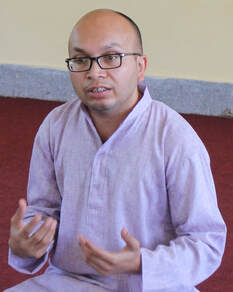
Ashish graduated from Indian Institute of Technology (IIT), Roorkee in the field of Electrical Engineering in 2009. Post studies, he pursued his corporate career for a few years before deciding to move on to his passion to work with rural communities. Since then, Ashish has lived in the villages of Gujarat and Himachal Pradesh and worked for many rural projects related to Education and Livelihood sector. Before founding Sahaj Foundation in 2013, he also worked with Indian Institute of Technology (IIT) Mandi to help set up their ‘Centre for Innovative Technologies in Himalayan Region’.
Presently, Ashish lives a simple and peaceful life in Bir village situated in Kangra District of Himachal Pradesh. He has chosen Education as his primary medium of service while he continues to explore more on organic farming and holistic healing with an aim to simplify his lifestyle and benefit the society as much as possible.
For past four years, Ashish has been conducting many dialogues and workshops on the theme of 'Rethinking Development'. He has so far facilitated such processes for hundreds of professionals and students. He strongly believes that there is a need to create spaces wherein people can develop their abilities to go deep within and understand the world by using their own experiences. This online program is his another effort to do just that!
Presently, Ashish lives a simple and peaceful life in Bir village situated in Kangra District of Himachal Pradesh. He has chosen Education as his primary medium of service while he continues to explore more on organic farming and holistic healing with an aim to simplify his lifestyle and benefit the society as much as possible.
For past four years, Ashish has been conducting many dialogues and workshops on the theme of 'Rethinking Development'. He has so far facilitated such processes for hundreds of professionals and students. He strongly believes that there is a need to create spaces wherein people can develop their abilities to go deep within and understand the world by using their own experiences. This online program is his another effort to do just that!
For more information, write to Ashish Kumar ([email protected]) or call him on +91 88948 93083

